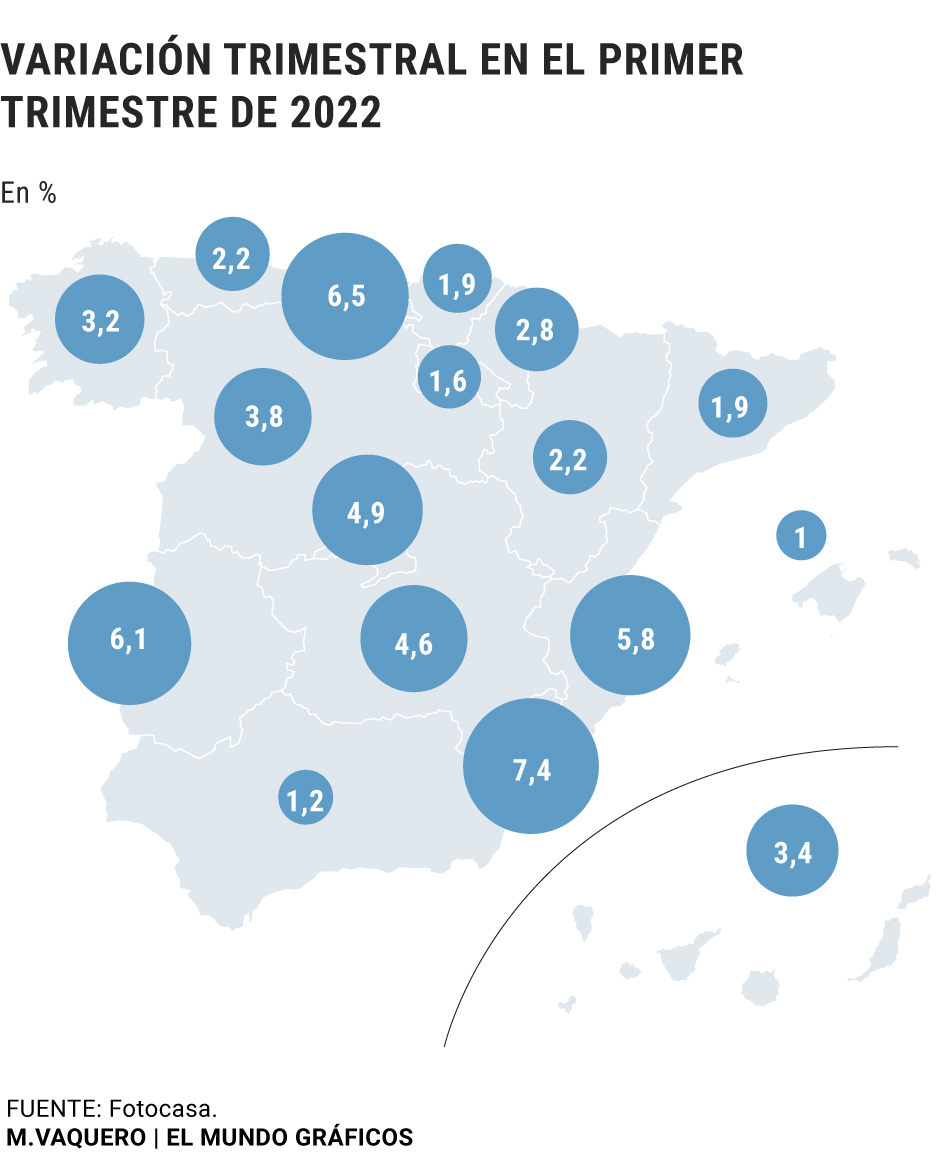When the rise in rents seemed not to peak, the pandemic and the successive confinements stopped the rise in rents in their tracks.
The rental market was one of the hardest hit by the coronavirus, but 13 months later,
the truce for tenants is over
: prices are becoming more expensive again while the youngest are still waiting to access the 250-youth bonus euros that the government promised at the beginning of the year.
The return of students to universities and the recovery of economic activity before the invasion in Ukraine translated into an
increase in demand in the big cities
from which many had left to telework or to study from their places of origin.
This increase in demand has pushed prices up again, so that they have experienced an average rise of 0.8% in the first quarter of the year compared to the same period in 2021, according to data from the real estate portal
Fotocasa
.
"The big cities are once again filled with young students, who are the ones who interact the most with this market and who are the ones who are most looking for a rental home, and the strong demand pushes prices up again," explains
María Matos
, Director of Studies and Spokesperson of the signature.
Between January and March, the
increase reached 2.5%
compared to the previous quarter, which placed rents at 10.53 euros per square meter per month.
"After 13 months with consecutive year-on-year falls, it seems that, for now, the declines have ended and the rental market is changing its trend," adds Matos.
A change in trend that also coincides with the
rise in inflation
.
At the end of March, the Government limited the revision of rents to a maximum of 2% during the next three months to prevent landlords from passing on the increase in the CPI to tenants.
In the sector they believe that the measure will last until the end of the year and that the extension will help contain higher increases, but they assume that despite everything, there will be increases.
"The recovery in demand will put pressure on prices and they will become more expensive throughout the year. In the contracts that were already signed, the rents would also have risen without the government cap, although they would not have completely transferred the CPI; however , the contracts that are made new will already include that inflation forecast and that will suppose another factor of pressure", points out
Beatriz Toribio
, an expert analyst in the real estate sector.
In his opinion, the rental market in Spain continues
to suffer from a shortage of supply
, especially affordable rental housing, and it would be necessary to increase the available stock to alleviate accessibility problems.
"Measures such as limiting prices, far from helping to solve the situation, add more complications because they discourage owners from putting their properties on the market," says Toribio.
Where is the bonus-young?
As a way to curb criticism for the intervention in the market, Pedro Sánchez announced a 250-euro rent-bonus for young people under 35 on the same day that he closed the agreement for the Housing Law that caps rents in stressed areas.
It was one of the
star measures
of this year's General Budgets and was to come into force in January, but almost four months later,
tenants are still waiting for the bonus and do not know when they will be able to access it.
"In recent weeks we have been receiving many requests for information from users who want to know how to request help, but we cannot give them an answer," says María Matos.
Your startup is stalled as rents continue to rise.
The Council of Ministers did not approve until March 1 the distribution of the 400 million euros among the autonomous communities that will be in charge of managing the applications and granting the aid, but several regional governments assure that the money has not yet arrived while others They complain about the difficulties in knowing the requirements and conditions established by the Ministry of Transport in the design of the mechanism.
Moncloa also established that the bonus will be retroactive from January 1, but while it becomes effective, insecurity and uncertainty delay the emancipation decisions of hundreds of young people in the country.
"The situation is a reflection of the confusion generated by the measures that the Government is taking in terms of housing, a confusion that in this case affects the tenants and their decision to become independent," says Beatriz Toribio.
"Transparent, clear and sustained regulation is needed for landlords and tenants," she claims.
Conforms to The Trust Project criteria
Know more
Rent
living place
HBPR

